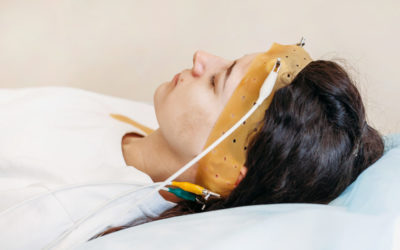Quick Hits
Daily brief research updates from the cognitive sciences

This is another study to show that there is no quick and easy answer to the question of screen time and children. In fact, a group of researchers have come to the conclusion that quality is the most important factor rather than quantity of screen time.
You may ask what quality is in terms of screen time with the number of programmes targeted at young children and particularly those under three-years old on the rise. Screen time, probably no surprise to many, has more than doubled over the last 30 years.
These researchers from the University of Portsmouth, UK, and Paris Nanterre University, France, analysed 478 studies over the last two decades in a paper just out.
They note that “Weak narrative, fast pace editing, and complex stimuli can make it difficult for a child to extract or generalise information. But when screen content is appropriate for a child’s age, it’s likely to have a positive effect, particularly when it’s designed to encourage interaction.”
So, the first thing is that the content should be suitable. Interestingly I noticed when my children were small that they became fascinated with the TV programme Caillou – Caillou is a cartoon done very simplistically about a small kid who experienced very simple daily problems. None of the crazy stuff that some cartoons have – but the story was so simple and relatable that they loved it.
The next surprise is that watching with parents (or others) seems to be positive – especially when this supports and enables interactions and clarifications – this seems to have positive effect and help with interpretation but also on development of words and language.
This suggest that watching age suitable content with your kids and enabling clarification and interaction but also shared enjoyment, not to forget, is positive and supports development of children.
So as with many things in life – screen time is more nuanced but the simple rule is make it age appropriate, share in the experience, and still allow social interaction. It’s also probably the same with adults!

Andy Habermacher
Andy is author of leading brains Review, Neuroleadership, and multiple other books. He has been intensively involved in writing and research into neuroleadership and is considered one of Europe’s leading experts. He is also a well-known public speaker, speaking on the brain and human behaviour.
Andy is also a masters athlete (middle distance running) and competes regularly at international competitions (and holds a few national records in his age category).
References
Bahia Guellai, Eszter Somogyi, Rana Esseily, Adrien Chopin.
Effects of screen exposure on young children’s cognitive development: A review.
Frontiers in Psychology, 2022; 13
DOI: 10.3389/fpsyg.2022.923370
More Quick Hits
Disagreements Improve Team Perception
We might assume that agreement would be high in high-performing teams – this study shows the opposite…
Brain Cells Adapt to Help You Stay Awake
Falling asleep is a funny thing – you don’t need to think about it when it happens but can cause many people who can’t incredibly frustration…
Dad Brain is Real
We know that mothers go through multiple physical and psychological changes after birth (and before) including change in brain structures but what about fresh fathers?
Mask-Wearing Makes You Better Behaved
This is a fascinating study that shows that wearing masks changes behaviour in subtle but important ways…
Coffee Can Help You Live Longer
Yes, that is good news for you (us) coffee drinkers. This supports plenty of more recent studies which have shown the health benefits of coffee…
Big Kids Die Earlier!
Before you panic – the conclusion in the title is based on research into mice not human beings – but there could potentially be some important insights for us human beings as well.






